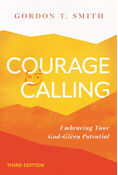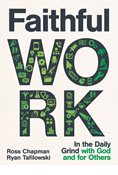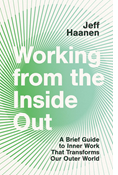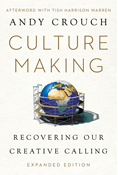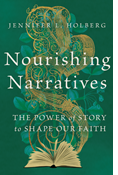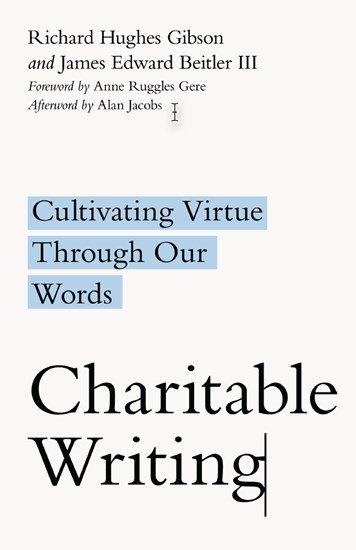
|
Charitable Writing
paperback
|
- Length: 248 pages
- Dimensions: 5.5 × 8.5 in
- Published: December 15, 2020
- Imprint: IVP Academic
- Item Code: 5483
- ISBN: 9780830854837
-
Other Retailers:
Amazon*
*affiliate partner
-
ebook
ECPA Top Shelf Book Cover Award
Our written words carry weight.
Unfortunately, in today's cultural climate, our writing is too often laced with harsh judgments and vitriol rather than careful consideration and generosity. But might the Christian faith transform how we approach the task of writing? How might we love God and our neighbors through our writing?
This book is not a style guide that teaches you where to place the comma and how to cite your sources (as important as those things are). Rather, it offers a vision for expressing one's faith through writing and for understanding writing itself as a spiritual practice that cultivates virtue.
Under the guidance of two experienced Christian writers who draw on authors and artists throughout the church's history, we learn how we might embrace writing as an act of discipleship for today—and how we might faithfully bear the weight of our written words.
"Richard Hughes Gibson and James E. Beitler III offer a refreshing alternative to agonistic argumentation, inviting us—readers and writers, teachers and students—to reimagine writing with humility as its cornerstone. Assembling a polyptych of saints as models for what such charitable writing might look like, Gibson and Beitler have added themselves to this great cloud of witnesses. Their nuanced and generous book led me to rethink the habits informing my own reading, writing, and teaching; may it do the same for you."
"Who we are is absolutely foundational for anything we write. Gibson and Beitler take us to the heart of this largely unexamined principle. Without being grounded as people, our writing will run into a ditch, or we will, or both. As just one instance of this, the authors unmask the menacing metaphor of argument as a form of war, generously offering alternatives to reshape us. Throughout they gently yet firmly guide us to embrace loving others not only in what we write but in how we write."
"I have lived my life attempting to follow Christ and have devoted my academic career to understanding rhetoric and religion. Yet Charitable Writing challenged me to think about writing as spiritual practice in ways I never had. Listening humbly, arguing lovingly, keeping time hopefully: take these concepts even remotely seriously, and they will transform your idea of what writing ought to be. Kudos to Gibson and Beitler. This is important work."
"In Charitable Writing, Richard Gibson and James Beitler achieve the worthy goal they set for themselves: they draw on rhetorical theory as well as art and writers in the Christian tradition to explore the all-encompassing effects of Christian love (charity) on the practice of academic writing. When Christians compose with the aim of enacting charity, they listen with humility, they respond to others as fellow children of God, and they demonstrate the discipline required by the metanoic process of writing. Gibson and Beitler offer fresh and worthy models for writers as they seek to embody the law of love."
"Gibson and Beitler draw upon a broad, deep understanding of the Christian tradition as it is represented in both word and image. Charitable Writing will inspire students and their teachers to approach the task of composing argumentative prose in a new way: as a spiritual discipline animated by love of God and love of neighbor. For as long as I continue to teach and to write, I will keep their wise book close at hand."
"In this delightful book, Richard Hughes Gibson and James E. Beitler III take an approach unusual in writing studies—something I can best call ekphrastic criticism—to offer us a lovely new way to consider the art and craft of writing and the vital ways it is linked to our very discipleship. For Gibson and Beitler, to 'listen humbly, argue lovingly, and keep the time of writing hopefully' is to understand our own faith incarnated in our words, the high calling of writing as spiritual practice."
"Charitable Writing offers a transformative vision of writing as a Christian spiritual practice. It is a compelling book that invites readers to reimagine the generative ways Christian tradition can animate writing practices, rhetorical education, and rhetoric itself."
"At this time of cultural polarization that is undermining the basis of democracy and threatening the unity of Christians, Charitable Writing offers lessons of the highest importance, not just to Christians but to all who care for the future of our civilization."
CONTENTS
List of Illustrations
Foreword by Anne Ruggles Gere
Opening Meditation: At the Gallery
Introduction: At the Threshold
Part One: Humble Listening
1. Entering the Study
2. On Humility
3. Humble Listening in Local Writing Communities
4. Humble Listening in Discourse Communities
Part Two: Loving Argument
5. The Law of Charitable Writing
6. On Argument
7. On Charity
8. Charitable Writing as Love’s Banquet
9. Beastly Feasting
10. Making Space at the Table
Part Three: Keeping Time Hopefully
11. Slow Writing
12. Liturgies of Writing
Closing Meditation: At the Gallery
Afterword by Alan Jacobs
Acknowledgments
Appendix A: Practicing Charitable Writing: Discussion Questions and Writing Prompts
Appendix B: Teaching Charitable Writing: Choosing a Via Nova, by Jeffry C. Davis
Appendix C: Writing as a Spiritual Discipline, by Stephanie Paulsell
Bibliography
General Index
Scripture Index



